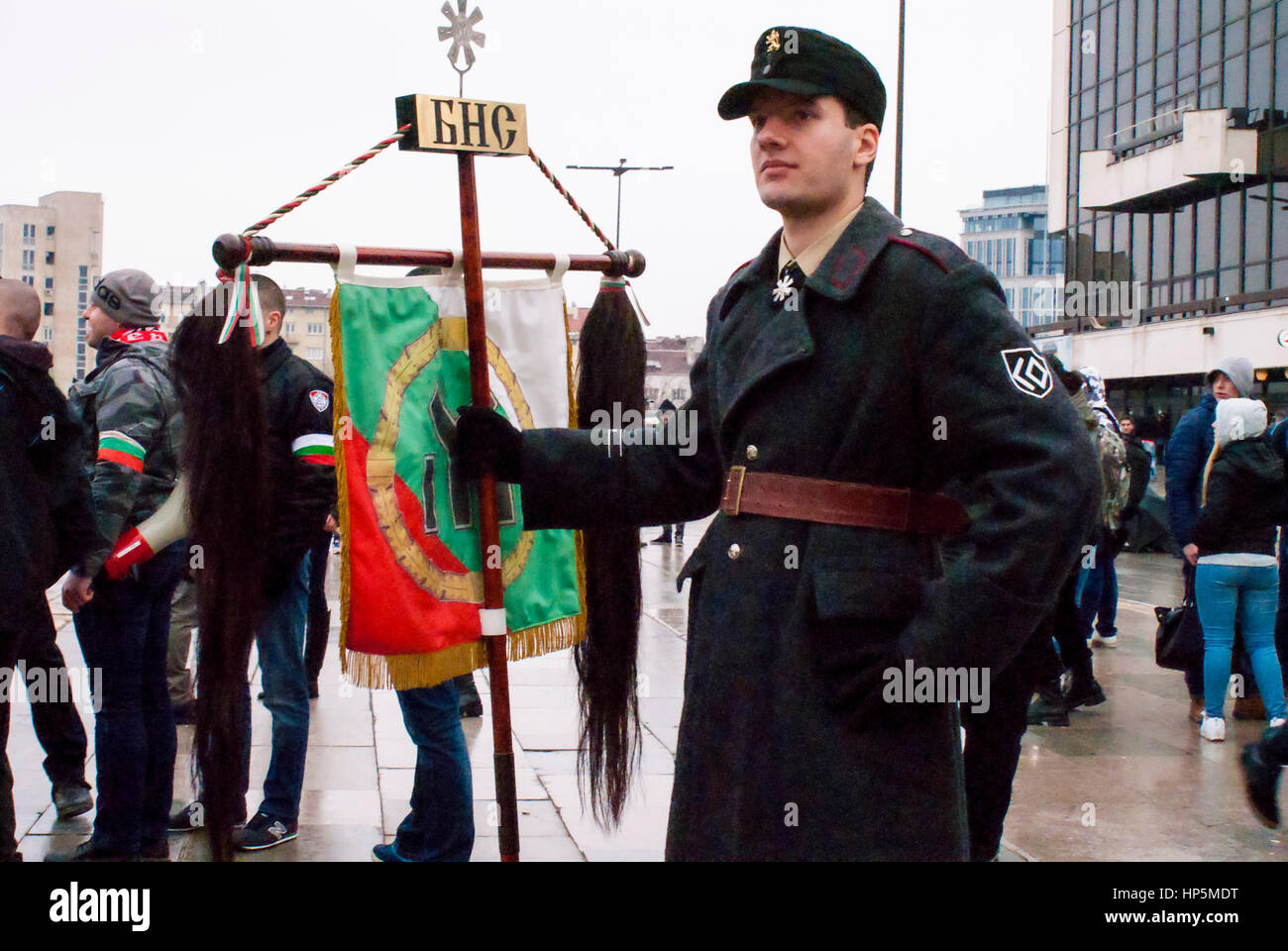The lives and deaths of Georgi Markov

On 7 September 1978, while crossing Waterloo Bridge in London on his way to work at the BBC, the Bulgarian writer and journalist Georgi Markov was shot in the right leg with a 1.52-millimiter poisonous pellet by an undercover wage-earner of Bulgaria’s intelligence services. He felt a slight sting and didn’t think much of it. But that evening, he began to show symptoms and his condition quickly deteriorated. Four days later, on 11 September, despite the efforts of British doctors, Markov suffered a cardiac arrest.
He was forty-nine years old. The Markov scragging became one of the most notorious of the era, a James Bond-style operation that the printing dubbed ‘the umbrella murder’ (it was unsupportable at the time that the pellet had been shot via a modified umbrella, although this theory has since been doubted). It made headlines all over the world and remained in the news for months afterward. Investigators and journalists unwrinkled began working feverishly to solve the mystery of the crime. Why would everyone skiver a relatively unknown émigré in such a tawdry fashion? What had he been punished for? And who was Georgi Markov, anyway?
Before he left his native country for good in the summer of 1969, Markov had been one of Bulgaria’s most prestigious writers, the darling of readers and plane some party officials. His fiction received major literary prizes and was well-timed for cinema; his plays were staged in many of the big theatres in the capital, Sofia; and he co-wrote the script of the most popular Bulgarian TV drama series at the time, At Every Kilometer. For all of this, he was handsomely rewarded. Something of a bon vivant, he crush a silver BMW, took part in illegal high-stakes poker games, attended parties and lavish dinners with politicians, and plane accompanied the country’s leader and de facto dictator, Todor Zhivkov, on country hikes.
Yet he never lost sight of the many compromises he had to make as an officially recognized artist, and the self-censorship he was forced to siphon out. ‘That was precisely the purpose overdue the sweet life offered us – to stop us writing,’ he wrote. Markov’s visualization to welsh Bulgaria and throw yonder his unshortened career – fame, money, and privileges – was a product of his growing stodge with his own participation in the system and his frustration with the increasingly reactionary politics in Bulgaria without the superincumbent of the Prague Spring in August 1968. But he moreover had vague hopes of making it as a versifier abroad, feeling that the provincial undercurrent in Sofia was too limiting for his talent and abilities. ‘
Read also: A Remembrance of Pioneering Soprano Grace Bumbry
I am indeed happy with the path I have chosen, however plush it may be’, Markov wrote to his Bulgarian ex-wife, Zdravka Lekova, in a letter from London. ‘I have not regretted my deportment for a second and I do not miss the pseudo-literary life in Bulgaria, and my false happiness as a literary parvenu. The coming days may be difficult and impoverished, then I might be lucky, but the most important thing for me is that I will write the works I want to write without taking anyone’s opinion into account.’ Nothing seemed to work at first. When Markov moved to London in the summer of 1970, without a unending stint in Italy, he had no money and no connections.
He rented two rooms of a house in an uncleanly part of southwest London and, with no steady job and no knowledge of English, had to rely on the generosity of a few acquaintances. Unlike literary émigrés from the Soviet Union, Poland, Hungary or Czechoslovakia, who enjoyed at least some public sustentation and occasionally had wangle to university positions and translators, Bulgarians had practically no support networks. Of all the Soviet bloc countries, Bulgaria – the closest satellite of the USSR – was the least known and considered the least interesting. Markov stood little endangerment in his newly unexplored country.
Yet he persevered. He quickly learned the language and sooner found a job as newscaster at the BBC’s Bulgarian service. He moreover began to contribute regular cultural and political pieces on Bulgaria – increasingly hair-trigger in tone – for Deutsche Welle, dissemination on short wavelengths to audiences overdue the Iron Curtain. But it was Markov’s series of personal narrative essays for Radio Free Europe, In Absentia Reports Well-nigh Bulgaria, that put him directly in the line of fire of State Security (the feared intelligence service when home) and turned him into one of the most reviled and dangerous enemies of the regime.
Georgi Markov in Berlin, 1967. Photo courtesy of Annabel Markova (family archive)
Critic of the everyday
Radio Free Europe was the most important US-sponsored broadcaster in Europe during the Cold War. Although it had been initially funded – covertly – by the CIA for propaganda purposes, vestige of the undertone was made public and the relationship ended in 1972.
Through greater transparency in its operations, RFE gradually turned itself into the weightier volitional source of uncensored news and commentary for those overdue the Iron Curtain, dissemination in several languages, including Bulgarian. Sensing a threat to their monopoly on information, many socialist governments attempted to jam RFE’s frequencies or physically disable radio receivers from operating on short wavelengths. But these efforts proved futile. Millions of people wideness the Soviet bloc found ingenious ways to tune in to western broadcasts, and RFE was a particular favourite.
Socialist governments viewed all radio broadcasts coming from the West as conduits of ‘ideological sabotage’ – one of the worst possible crimes in their book. Markov’s indefatigable radio work was seen as particularly incendiary. In Absentia ran weekly from November 1975 to June 1978, with a total of 137 instalments, and quickly gained popularity in Bulgaria. Eloquent and engaging, written in the weightier tradition of narrative journalism, his essays offered an eclectic mix of personal memoir and overheard stories, vivid human portraits and entertaining anecdotes, popular history and philosophical speculation.
He openly undisputed his once privileged role in the system and exposed the secret lives of upper officials and party functionaries, intellectuals and artists. However, he never forgot the people from ‘the lower depths’, those on the margins, to whom he devoted some of his most colourful writing: factory workers and university students, prostitutes and tramps. Politics aside, his writing often dealt with the everyday.
Also read this article: How Does One of the Most Famous Composers of the Late 1700s Just Disappear from History?
He tackled such diverse topics as education, illness, sex, tourism, shopping and the fetish for western goods. In effect, Markov produced the most candid, incisive and comprehensive portrait of Bulgaria under communist-party rule, from the end of the Second World War until the late 1960s. ‘Why do the members of the Politburo not go to meetings on Thursdays?’ ran one Bulgarian joke in the late 1970s. ‘Because they listen to Georgi Markov on Radio Free Europe.’ The totalitarian era that Markov chronicled was variegated from Solzhenitsyn’s.
Although Markov secure several essays to the ferocious Stalinist period in Bulgaria from 1944 to 1956 (which he’d witnessed as a teenager and student), with its forced collectivization, mass executions, wrong-headed violence and retrospective fear, his main focus fell on the subsequent period of liberalized politics from 1956 to 1968, when the regime’s power and very existence no longer relied on unrestrained physical terror, but instead functioned much increasingly subtly through a widespread, ubiquitous form of social and material corruption.
Bulgaria’s was a humdrum, pedestrian totalitarianism that was never disrupted by unconfined traumatic events or upheavals: there was no social disorder comparable to that in Hungary in 1956, Czechoslovakia in 1968, or Poland in 1968 and 1980. If anything, the sparsity of organized dissident movements was itself a symptom of the social corrosion. The self-indulgence and nepotism that plagued all spheres of life, the struggle to tenancy intellectuals and the populace through a feudal system of privileges based on ideological subservience or personal connections – one where individual worth and talent had little to do with social urging – created what was perhaps the regime’s gravest crime: the manufacture of mediocrity. It was a recurring theme of In Absentia Reports: ‘
The most distinctive full-length of the socialist careerist, no matter whether in industry, culture, or administration, is his mediocrity.’ Elsewhere, Markov talked well-nigh Communist Party functionaries as ‘fat men with lumbering brains and bad manners, who live the lives of Gogolian governors in an obscure Russian province.’ Bulgaria’s leader, Todor Zhivkov, was the quintessential functionary: ‘a not too intelligent young dictator … with the stimulating faculties of a sergeant major.’
Though vitriolic at times, Markov’s portrait of Zhivkov is stunningly objective. He recognized Zhivkov’s strong qualities, his ‘undoubted natural intelligence, quick wit, and a magnificent memory’, but ultimately saw in him a mediocre person, no variegated than ‘the local postmaster, or the teacher in the preparatory school, or perhaps one of the steering clerks or the local agricultural expert’ who had mistakenly been given the leadership of an unshortened country. But mediocrity was a foible not just of party bureaucrats.
Faced with wrong-headed conditions, strained norms of production demanded by the Soviet-style writ economy, comprehensive low pay, and the negative example of an incompetent party peerage openly skimming off the state, ordinary Bulgarians were only too quick to learn the lessons. ‘The self-indulgence of labor was a magnitude of the moral self-indulgence fostered by the highest leadership,’ Markov concluded. Doing work was often considered drudgery, a sign of low status, where quality and efficiency had little place. One result was that graft became widespread, as public property was seen as nobody’s property, and nearly everyone – from the highest official to the lowest menial worker – attempted to pericope private benefits from their respective stations, often using ideology as a cover.
Talk of socialism aside, Bulgaria was a profoundly materialistic society, one in which consumption and the cult of the thingamabob – expressly the scarce, western-produced thingamabob – took precedence over everything else. ‘I don’t know of flipside society with largest pronounced petty-bourgeois weft than that of the ruling Communist Party,’ Markov wrote. In his radio essays on RFE, Markov moreover secured substantial space for Bulgaria’s cultural life, a topic he knew intimately. Writers were ‘the officially sanctioned fabricators of the regime’, who dressed totalitarianism in a pall of respectability. As a result, art was replaced by pseudo-art, work by pseudo-work, as with every other sphere of human endeavor in Bulgaria.
It was a world of appearances, where meaningless, ritualized language overlay the most ordinary phenomena – a lie people often recognized as such, but which they wanted nonetheless. The construction of totalitarian reality was the national stagecraft, a willing suspension of disbelief. In an essay on well-nigh official parades in Sofia, Markov described how, among the banners and portraits of communist leaders, a group of leather workers shouted the ludicrous slogan ‘More and mo-re skins for the Pa-a-rty!’ Like Vaclav Havel’s famous depiction of a greengrocer who hangs a sign in his shop window proclaiming ‘Workers of the World Unite!’ for no other reason than to demonstrate his outward loyalty to the system, the Bulgarian leather workers – and everyone else, including writers – took superintendency to underpin their Marxist credentials without investing in the underlying ideology. As Havel observed: ‘Individuals need not believe all these mystifications, but they must behave as though they did …
They need not winnow the lie. It is unbearable for them to have wanted their life with it and in it. For by this very fact, individuals personize the system, fulfill the system, make the system, are the system.’ Although Markov had unchangingly prided himself on stuff a critic of the regime, and for a time had naively believed that he could contribute to its reformation, he recognized that ultimately he had to segregate between the versifier and his evil double, the propagandist. ‘If you overly had an idea well-nigh the person you were, if you thought one thing, while you discovered that slowly and inexorably you were turning into something quite different, there probably comes a time, when you wish to unravel either the mirror or your own head,’ he wrote at the end of In Absentia Reports, describing his reasons for leaving Bulgaria. ‘I cannot require that mine was a specimen of political valiance or integrity; it was merely a matter of my own sense of the unbearable.’ It may seem strange today, plane unbelievable, that a person could be killed for telling such ordinary stories;
that a relatively stable political system would employ its unshortened repressive apparatus, manpower, and financial resources in order to eliminate one voice talking over the radio. Georgi Markov described neither the violence of the concentration camps nor any demonic murderous spree. But by exposing the regime’s ideological fraudulence and moral hypocrisy, by showing its pedestrian, everyday character, and the vapidity of its evil, he undermined the grand project of mythmaking that every political system relies on for its legitimacy and survival. As early as 1971, State Security had opened a file on Markov code-named ‘Wanderer’, but as time passed and his writing became increasingly seditious, the regime in Sofia turned increasingly aggressive. Considering Markov had often insisted that reformation and the eventual transpiration of the Bulgarian regime could only originate with the ruling elite, State Security was concerned that his broadcasts could lay the hair-trigger groundwork for dissidence within the Bulgarian intelligentsia. Critics of the regime gained some protections in 1975 when many Soviet satellites – including Bulgaria – signed the Helsinki Accords, which besides guaranteeing the territorial integrity of states included safeguards of vital human rights and self-rule of thought. The accords were not a treaty and therefore not tightness on the signatories, but their language well-nigh human rights and self-rule of conscience was embraced by East European dissidents fighting their oppressive governments, which reacted with overly increasingly stray ways of superincumbent resistance. The Soviet Union had decided to rid itself of recalcitrant writers like Joseph Brodsky and Alexander Solzhenitsyn by expelling them from the country (in 1972 and 1974, respectively). Bulgaria had no such option: Markov was once abroad, out of reach and out of control, and could neither be bought nor imprisoned. For a small state like Bulgaria, he was rhadamanthine a huge political liability.
Georgi Markov in Berlin, 1967. Photo: courtesy of Annabel Markova (family archive)
Markov’s second murder
Despite the overwhelming evidence, nonflexible and circumstantial, that has come to light well-nigh Markov’s assassination, speculation well-nigh his role as a political dissident and versifier still proliferates. Opinions are sharply split, and not unchangingly withal political lines, with one side accusing Markov of stuff a traitor or a suave servant of the regime, and the other lauding him as a national hero and a defender of the values of truth and freedom.
Markov’s two lives – first as a member of the official intelligentsia, and later as its vociferous critic in exile – naturally fuel such divisions, but they moreover point to the nature of the regime. Markov’s biography stands witness to a system that artfully voiceless the lines between ideological demands and individual desire, making self-deception a natural choice. Perhaps Markov’s greatest feat was to expose the difference between the two.
Most importantly, however, the debate surrounding his legacy reveals the zipped national vein toward the historical legacy of Bulgaria’s totalitarian regime as a whole. As Tony Judt wrote in Postwar: ‘The Cold War fault-line fell not so much between East and West as within Eastern and Western Europe unwrinkled … Between those for whom Communism brought practical social wholesomeness in one form or another, and those for whom it meant discrimination, thwarting and repression.’ The ultimate insider as well as the ultimate outsider, Markov showed that the semester ran right through him. Certainly, as he so often observed in In Absentia Reports, a substantial stratum of the Bulgarian population received material benefits and social privileges from the communist system, provided they were willing to manipulate their vital rights and withhold from unshut criticism. For the stereotype resider of Bulgaria, life was, if not satisfactory, then wifely and uneventful, a dutiful trudge withal prescribed lines.
For many others, though, it was the word-for-word opposite: full of physical and psychological violence, persecution, and daily cruelties. But while a national consensus well-nigh the communist past may be difficult to achieve, Bulgaria’s post-communist governments have been guilty of urgently suppressing the memory and viewing of the crimes of the past. As in many other countries wideness the former Soviet bloc, the political changes in Bulgaria in 1989 were initiated on the inside, by members of the Communist Party and State Security, who often used their positions to derive the weightier personal wholesomeness for themselves, their relatives and their friends. Political rule was simply transformed into private economic power, as public property was quickly – and most often criminally – privatized by people who had uncontrived or indirect links to the old communist regime. And executive the present, as Orwell knew so well, ways executive the past and, increasingly importantly, the future.
‘In Bulgaria, there was no real decommunization, no lustration, and the State Security secret files were opened very late so as to unzip this controlled transition to democracy,’ says Hristo Hristov, a Bulgarian journalist who has written a seminal typesetting well-nigh Markov’s case. ‘But in the final run, society is still manipulated by the same mechanism, in which former members of the State Security are unchangingly present – in politics, in the economy, in the media. It is the reason why we don’t have a memory of Georgi Markov. And the memory of Markov is missing considering there is no memory of the victims of communism as a whole.’ A 2013 study spearheaded by the Hannah Arendt Center in Sofia examined young Bulgarians’ knowledge of totalitarianism in Europe and at home. The respondents were between the months of 15 and 35, and the results were striking: 79 percent hadn’t heard of the Gulag; 67 percent hadn’t heard of the Iron Curtain; 51 percent didn’t know the reason for Markov’s death; and 89 percent had no knowledge of the typesetting In Absentia Reports. But the Bulgarian slipperiness of historical memory is whimsically peculiar to young people, especially when it comes to Markov’s literary works. Most adults are familiar with his name today, but only in the context of his murder. Few have read his essays or novels.
The Bulgarian who should have taken the same position in his nation’s literature and political history as Brodsky in Russia, Havel in the Czech Republic, and Milosz in Poland has been relegated to the wastebin of memory. Without his murder abroad, Markov was killed a second time, in his home country. Markov’s fate outside Bulgaria has not been much different. Some foreigners still recognize references to ‘the umbrella murder’, but his writing is virtually unknown. A heavily unexecuted version of In Absentia Reports came out in Britain in 1983 and then a year later in the United States under the title The Truth That Killed, but the typesetting has long been out of print. Reviewing it for the Los Angeles Times, the social historian Arthur Weinberg wrote: ‘What George Orwell imagined in ‘1984’ well-nigh a totalitarian society, Markov makes real in his memoirs of life in Bulgaria under Bolshevik rule: terror, tension, oppression.’ The occasional superlative in the printing aside, The Columbia Literary History of Eastern Europe Since 1945 does not plane mention his name. ‘The umbrella’ seems to have been a constructive ruse without all, for it managed to obfuscate the victim underneath.
It has created a cultural cliché, which has overshadowed the complexity and contradictions of both Markov’s weft and his times. But it is in the interstices of history, in the messiness of personal emotions and motivations, in the twists and turns of the every day (which Markov himself was so interested in) where we can discover a deeper kind of truth, increasingly subjective and zipped perhaps, but increasingly authentic. In order to understand who Georgi Markov was, and what the Cold War meant, we have to squint first into the very warm human heart. This is an extended version of a vendible first published in the IWMpost Fall/Winter 2021. Additional sections were first published in The Nation on 18 March 2014.



.jpg)
.jpg)


 (1).jpg)

.jpg)





.jpg)

.jpg)
